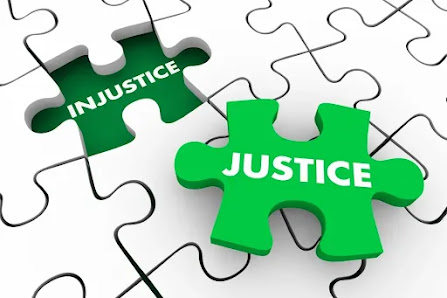Therapy in Justice: A Case for the Decriminalization of Attempted Suicide
Therapeutic Jurisprudence (TJ) is an area of philosophy that stems from mental health law. David B. Wexler posits that it looks at the underappreciated area of the law’s impact on the emotional life and psychological well-being of the people subject to it. Further, it seeks to extrapolate the law's great potential to be a therapeutic agent and facilitate healing. Essentially, therapeutic jurisprudence focuses on the law in terms of legal arrangements and therapeutic outcomes rather than in terms of stringent rules. TJ seeks to explore the fields of psychiatry, psychology, criminology, and social work vis-a-vis how they can, simultaneously and harmoniously, be consistent with the due process framework.
The criminal justice system in Kenya is founded on various principles such as retribution, deterrence, incapacitation, rehabilitation, and restoration. Retribution, deterrence, and incapacitation are the fundamental elements of the adversarial legal system that we inherited from our colonizers. Rehabilitation and restoration seem to be gradually developing while we seek to quench our thirst for real justice. This is because they create a different approach to dealing with crime and its impacts. The goal is to address the dehumanization frequently experienced by people in the traditional criminal justice system so that rather than the narrow view that a criminal act has simply violated a rule or statute, the law uses a wider lens to view this action as a violation of people and relationships. In this way, the law determines the manner in which the harm can be repaired while holding the actor of the crime accountable for their actions and reducing the likelihood of re-offense instead of focusing on the punishment meted out.
A case in point is how our legal system handles matters having to do with suicide and attempted suicide. I tend to agree with the sentiments of Lawrence Hammond when he opined:
"When a man is in the act of taking his own life, there seems to be little advantage in having the law say to him: "You will be punished if you fail." What is done to him will not tend to deter others because those bent on self-destruction do not expect to be unsuccessful. It is doubtful whether anything is gained by treating such conduct as a crime."
It is quite unfortunate that Section 226 of the auspicious Penal Code of Kenya stipulates that any person who attempts to kill himself is guilty of a misdemeanor. Simply, he or she is liable to be punished through imprisonment for a term not exceeding two years, with a fine, or even with both! Despite the fact that our felicitous constitution provides that Kenya is a secular state, the main reason we still have such a law is that I would presume, no one is so audacious as to go against the religious beliefs that life is sacred, hence man is not to interfere with it in any way. Blackstone put it this way:
"No man hath a power to destroy life but by commission from God, the author of it; and as the suicide is guilty of a double offense, one spiritual, in evading the prerogative of the Almighty and rushing into his immediate presence uncalled for; and the other temporal, against the king, who has an interest in the preservation of all his subjects, the law has, therefore, ranked this among the highest crimes, making it a peculiar species of felony, a felony committed on oneself
For the avoidance of doubt, I have nothing against religion. I am a Christian, for that matter. I believe that life is sacred and should be treated as such. However, I am also aware of the fact that Jesus did not chase away the tax collector; he was willing to go to his house and dine with him. Jesus did not punish the prostitute; he actually stood up for her, saying that whoever thought they hadn’t sinned could throw the first stone. My point is this: a little grace would go a long way. To have a law that criminalizes suicide in the name of religion is outright heresy. With reference to the words of Lawrence Hammond, why would we opt to put a sick person in the company of criminals instead of other patients? It begs the question, "What is the purpose of the law?" What is Section 226 meant to mitigate or resolve?
This is where therapeutic jurisprudence comes into play. Different stakeholders in the legal profession may or may not have intuitively embraced a more humanistic, healing perspective of the law. Even so, I believe that if we explicitly embrace Therapeutic Jurisprudence, it is going to allow people to share more ideas and come up with techniques and systems to incorporate into our legal system. This will allow for the growth of a common vocabulary and/or conceptual framework to improve effective implementation and application.
As I conclude, I do not seek to insinuate that therapeutic jurisprudence harbors all the answers that our criminal justice systems seek. I do not seek to promote therapeutic goals over traditional legal values. Instead, I hope to objectively and creatively express the law as a therapeutic agent as well as its exponential potential to facilitate healing.




Very insightful piece. I am informed now
ReplyDeleteA classic and original piece. It is insightful and thought provoking.
ReplyDeleteExcellent piece. I am convinced that it is time to relook the law touching on this matter.
ReplyDeleteGood work, very insightful.
ReplyDeleteTJ will move forward because of people like you.
ReplyDeleteA commendable piece of art in form of writing.
A very good and informative piece.... Great work here
ReplyDelete